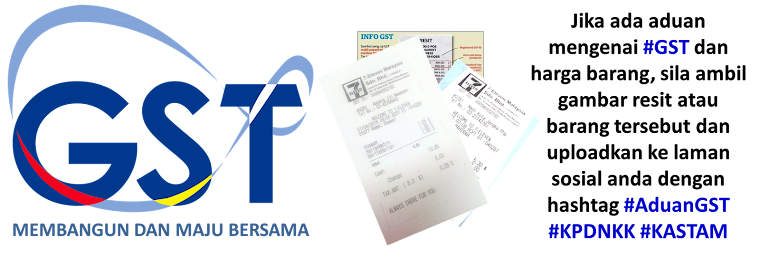Published: Tuesday October 29, 2013 MYT 12:00:00 AM
Updated: Tuesday October 29, 2013 MYT 9:14:40 AM
BY CECILIA KOK
KUALA LUMPUR: Malaysia’s inflation, as measured by the consumer price index (CPI), is expected to increase between 3.5% and 3.8% when the goods and services tax (GST) takes effect from April 1, 2015, but the inflationary pressure is expected to eventually moderate within a year.
“We are not denying that inflation would not happen when the GST is implemented … we do expect to see a one-time spike in inflation to around 3.5% to 3.8% due to (among others) speculators and profiteers,” Treasury secretary-general Tan Sri DrMohd Irwan Serigar Abdullah said.
“So, this is the right time to introduce the GST because our country’s inflation rate is still low at around 2%,” he explained during the post-2014 Budget dialogue here yesterday.
The post-budget dialogue is an annual event organised by the Malaysian Economic Association. This year’s event featured Irwan as the keynote speaker, and Minister of Youth and Sports Khairy Jamaluddin, Member of Parliament for Petaling Jaya UtaraTony Pua and World Bank economist Dr Frederico Gil Sander as the panellists.
According to Irwan, studies and the experience of other countries had shown that inflation spikes as a result of GST implementation would merely be a one-off event and that it would eventually taper off. In the case of Malaysia, he said, it would likely take around one year for inflationary pressure to moderate after GST implementation.
The GST was a major highlights of Budget 2014, which was tabled by Prime Minister Datuk Seri Najib Tun Razak last Friday. The consumption tax, which would be introduced at an initial rate of 6% by April 1, 2015 to replace the existing sales and services tax, is aimed at widening the country’s tax base. It is also part of broader structural reform measures to build long-term resilience of the country’s economy.
The Finance Ministry has estimated that the GST would increase the Government’s revenue by around RM3.8bil in 2015 and RM9bil in 2016.
Noting the relatively small net impact of the GST on the Government’s revenue, Khairy said: “The GST alone cannot solve the country’s fiscal deficit.”
“We must be vigilant against overspending and punish those responsible for (fiscal) leakages,” he said in seeming agreement with Pua, who expressed concern over the fiscal discipline of the Government.
“Our contention is that whenever there is extra income for the Government, it goes towards spending more, instead of being used to pare down the country’s fiscal deficit,” Pua argued.
“It would seem the Government is concerned about just meeting the fiscal deficit target rather than cutting the country’s fiscal deficit as much as it can, especially when it has the extra revenue to do so,” Pua explained, adding that the continuous growth of the country’s operating expenditure was also an area of concern.
“Oil and gas revenue should be invested in development expenditure for future replacement revenue and productivity; it should not be used to fund the country’s operating expenditure,” Pua argued.
Gil Sander, who reckoned that Budget 2014 looked “more credible” than those that had been tabled in previous years, said implementation remained key. “The GST had been announced several times before in budgets of previous years, but for various reasons, it was eventually cancelled or postponed,” he said.
“So, this round we need to see actual implementation, and on time,” he added.



No comments:
Post a Comment